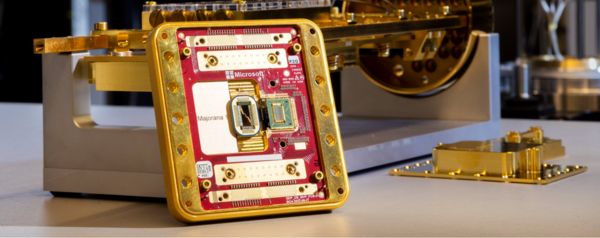Microsoft has unveiled a groundbreaking quantum computing chip, Majorana 1, which it claims could revolutionise fields ranging from environmental science to medicine. With this announcement on Wednesday, the tech giant is stepping up its challenge to Google and IBM in the race to make quantum computing a practical reality.
The US-made chip, small enough to fit in the palm of a hand, is designed to tackle one of quantum computing’s biggest hurdles—stability. Microsoft believes its new approach could make quantum machines more reliable and scalable than existing technologies.
“We took a fresh approach and basically reinvented how quantum computers could work,” said Chetan Nayak, a senior scientist at Microsoft. The company’s research, confirming this breakthrough, was published in the journal Nature.
Unlike traditional computers that rely on binary processing (1s and 0s), quantum computers utilise qubits—particles that can exist in multiple states simultaneously—offering the potential to solve problems that would take today’s most advanced supercomputers thousands of years.

Microsoft says the Majorana 1 chip could eventually lead to machines capable of tackling global challenges, such as breaking down harmful microplastics in the ocean or developing self-repairing materials.
While Microsoft acknowledges that quantum computing is not yet ready for widespread use, it insists that this breakthrough brings the technology closer to real-world applications, possibly within “years rather than decades.”
The quantum computing race has become a major frontier for global innovation, with both the United States and China investing heavily in research while Washington enforces strict export restrictions on the sensitive technology.
Microsoft is one of two companies selected by the US Department of Defence to advance to the final phase of its quantum computing programme, highlighting the strategic significance of the technology.
In December, Google announced its major quantum breakthrough with the Willow chip, dramatically reducing computing errors and calculating in minutes that would take a classical supercomputer millions of years. With Majorana 1, Microsoft is now firmly in the race to shape the future of computing.


